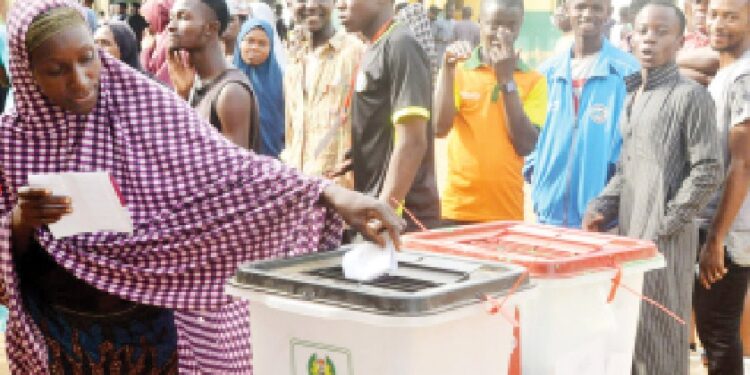Trust our politicians to turn every election into a theatre of the absurd. Whenever they lose, the script is always the same: cry foul, claim rigging, and throw tantrums like petulant children denied their favourite candy.
The recent Ondo State gubernatorial election is just another chapter in Nigeria’s long-running political drama. Win or lose, our politicians have mastered the art of delegitimising electoral processes faster than you can say “independent electoral commission”.
Let’s cut to the chase. In Nigeria, an election is “free and fair” only when a politician wins. When he loses? Hell hath no fury like a defeated candidate. When he triumphs in court, the judiciary suddenly becomes the “last hope of the common man”. When he loses in court? Democracy is supposedly gasping its last breath.
Sounds familiar? Of course it does. This isn’t just a Nigerian problem. Remember Donald Trump? The man is still insisting the 2020 US presidential election was stolen, despite every conceivable evidence to the contrary. Politicians, it seems, are cut from the same cloth worldwide – but Nigeria has perfected this art form.
The thing is, our elections are complex ecosystems influenced by local dynamics that national observers often miss. Factors like zoning, Awo Lokan (It is our turn) at the local level, party loyalty, religious sentiments, and ethnic considerations play crucial roles. A party’s national performance doesn’t guarantee its success at the state level. Politics, after all, is fundamentally local.
Now, am I saying our elections are pristine? Absolutely not. Rigging in Nigeria isn’t just a practice; it’s practically embedded in our political DNA. No matter how good the Independent National Electoral Commission’s (INEC) intentions, our politicians will always find a way to circumvent the system.
Give credit where it’s due: INEC has tried. Card readers, BVAS, IREV – these innovations were meant to inject some integrity into our electoral process. Have they completely stopped manipulation? Of course not. But at least we’ve moved past the era of brazen ballot box snatching.
Our politicians have simply evolved. Can’t steal ballot boxes? No problem. They’ll now instigate crises in opponents’ strongholds, ensuring votes get cancelled or suppressed. Innovative, isn’t it? In the most cynical way possible.
Take a closer look at vote-buying – that open secret everyone pretends not to see. Two candidates engage in this practice, essentially turning elections into auctions. The highest bidder wins, and the loser cries foul, conveniently forgetting their own role in this charade. One candidate gives 5,000 naira, another responds with 10,000. Voters become mere commodities in this transactional political marketplace.
The real tragedy isn’t just the election rigging. It’s the systematic undermining of our institutions. When politicians lose, they don’t just contest results; they launch full-scale attacks on the entire electoral architecture. This juvenile behavior isn’t just counterproductive; it’s corrosive to our democratic foundations.
We’ve normalised this madness to such an extent that crying foul has become a standard post-election ritual. Lost an election? Claim it was rigged. Won through questionable means? Celebrate and silence the critics. This circular logic has become our political default setting.
Can we have truly free, fair, and credible elections in Nigeria? Right now, it seems almost impossible. The problem isn’t just with the system; it’s with the mindset. Our political class is addicted to winning at all costs, treating political office like a do-or-die battlefield rather than a public service opportunity.
The irony is that while our politicians fight tooth and nail over electoral spaces, the real losers are Nigerian citizens. While they engage in these power plays, millions remain trapped in poverty, battling infrastructural challenges, security threats, and economic uncertainties.
Unless we change this fundamental approach – unless politicians start viewing elections as a means of public service rather than personal conquest – we’re doomed to repeat this cycle indefinitely.
The change must start with us – the voters, the citizens. We must demand better. We must refuse to be pawns in this endless game of political manipulation. We must insist on integrity, transparency, and genuine representation.
Every election is a reflection of our collective political maturity. Right now, that maturity is seriously in question. Our politicians seem more interested in winning than in governing, more focused on power than on progress.
Until we address these fundamental issues, until we create a culture that values fair play over victory at all costs, our electoral process will remain a mockery of democratic principles.
Until then, welcome to Nigerian politics – where every election is a drama, every loss is a conspiracy, and credibility is just a fancy word politicians like to throw around.



